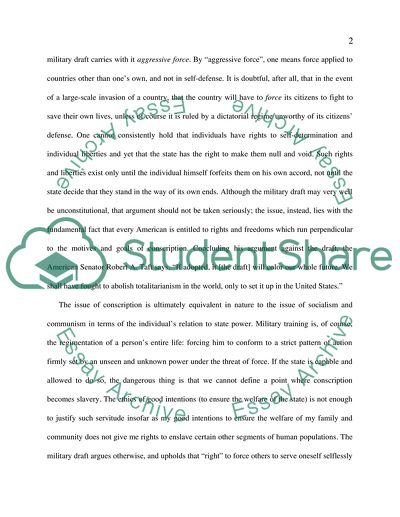Cite this document
(“The Voluntary Service of Citizens in the Armed Forces Essay”, n.d.)
Retrieved from https://studentshare.org/military/1552204-should-the-military-draft-be-reinstated
Retrieved from https://studentshare.org/military/1552204-should-the-military-draft-be-reinstated
(The Voluntary Service of Citizens in the Armed Forces Essay)
https://studentshare.org/military/1552204-should-the-military-draft-be-reinstated.
https://studentshare.org/military/1552204-should-the-military-draft-be-reinstated.
“The Voluntary Service of Citizens in the Armed Forces Essay”, n.d. https://studentshare.org/military/1552204-should-the-military-draft-be-reinstated.


